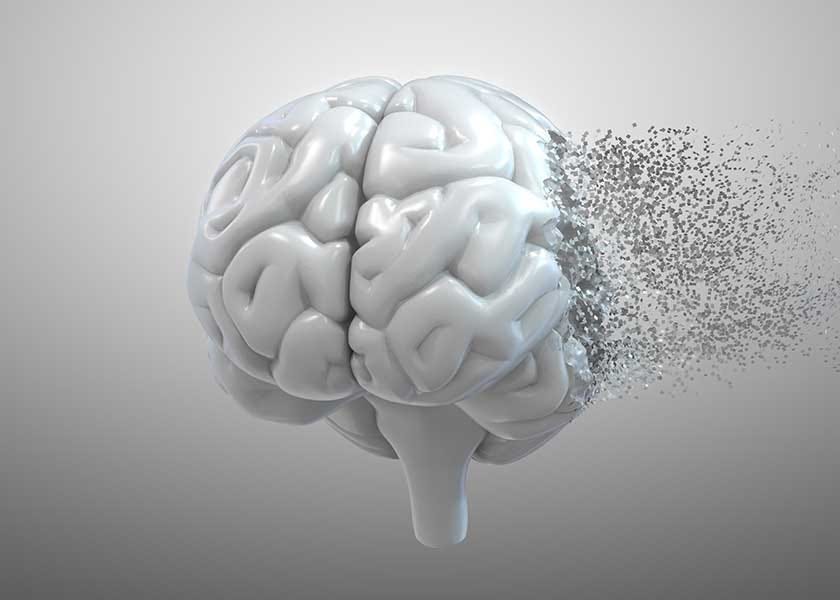Weight Training: Dementia Protection

A study from Brazil's State University of Campinas has revealed that twice-weekly weight training for six months can preserve brain regions vulnerable to Alzheimer's in older adults with mild cognitive impairment (MCI). The research indicated that five of the 22 participants in the resistance training group improved enough to no longer meet clinical criteria for cognitive impairment.
Exercise, including weight training, protects the brain through multiple mechanisms. It stimulates growth factors like brain-derived neurotrophic factor (BDNF), reduces inflammation, improves cerebral blood flow, and regulates stress hormones that contribute to cognitive decline. For optimal longevity benefits, research suggests limiting strength training to 40 to 60 minutes weekly; exceeding 130 to 140 minutes may reverse health gains.
Mind-body exercises like yoga and tai chi also benefit brain health by lowering cortisol, reducing anxiety, and improving executive function, attention, and processing speed.
As the global population ages, dementia cases are expected to double every two decades, rising to 78 million by 2030 and 139 million by 2050. Early symptoms often manifest as mild cognitive impairment (MCI), affecting 10% to 20% of adults over 65 and significantly raising the risk of Alzheimer's disease. With no cure for Alzheimer's and limited pharmaceutical options, scientists are exploring how lifestyle interventions can help preserve cognitive health.
The featured study, published in the GeroScience journal in January 2025, focused on whether weight training prevents brain shrinkage and memory loss before full-blown dementia takes hold. The study involved 44 older adults with MCI, randomly assigned to either twice-weekly supervised resistance training or a non-exercising control group. Training sessions lasted six months and used moderate to high-intensity weights with progressive loading.
The researchers focused on two brain areas often damaged in the early stages of Alzheimer's disease: the hippocampus, which is key for forming new memories, and the precuneus, which plays a role in attention, visual processing, and sense of self. After six months, the exercise group saw no volume loss in the right side of either region, unlike the control group, which experienced significant shrinkage in both. This suggests weight training can help physically preserve brain tissue in areas most vulnerable to Alzheimer's.
Beyond just preserving brain volume, weight training also improved the quality of the brain's white matter, which serves as the communication network between different brain regions. The study also found an increase in fractional anisotropy, an indicator of healthier, more organized nerve fibers, in the training group. In contrast, the control group saw a decrease in the same metric, showing a steady decline. The training group also saw a decrease in axial diffusivity, which indicates less damage along nerve fibers, while the control group's white matter degraded.
Participants in the resistance training group scored higher on tests of verbal episodic memory, which is the ability to recall words or stories from recent conversations or events. By the end of the study, five of 22 participants in the training group had improved so much that they no longer met the clinical criteria for mild cognitive impairment, while memory declined further in the non-exercising group.
Isadora Ribeiro, the lead author of the study, noted that longer training sessions, lasting three years, could reverse this diagnosis or delay any kind of dementia progression. These findings point to two likely reasons why resistance training helped. First, it stimulates the release of brain-protective molecules like brain-derived neurotrophic factor (BDNF) and irisin, both of which support nerve growth and repair. Second, it lowers overall inflammation in the body, including the brain, which is known to accelerate cognitive decline.
Dr. Marcio Balthazar, one of the lead researchers of the study, highlighted that non-pharmacological measures, as shown with weight training, are effective not only in preventing dementia but also in improving mild cognitive impairment.
Research consistently showed that people who exercised were up to 45% less likely to develop Alzheimer's and had a 28% lower risk of dementia overall. The strongest effects came from aerobic training, resistance training, or a combination of the two. Exercises like Tai chi and yoga were also found to be effective, especially in enhancing executive function, attention, and processing speed.
The review highlights four key biological mechanisms that explain how exercise protects the brain. First, it boosts levels of growth factors like BDNF and insulin-like growth factor 1 (IGF-1), which help brain cells grow, repair, and communicate more efficiently. Exercise also helps regulate the immune system by lowering chronic inflammation, which contributes to cognitive decline. Moreover, it improves blood flow and oxygen delivery to the brain by strengthening the heart and blood vessels. Finally, it helps stabilize the body's stress system, particularly the hypothalamic-pituitary-adrenal (HPA) axis, which becomes overactive with age and damages brain tissue.
Aerobic exercise was more likely to raise BDNF levels, especially in older adults over 65. In contrast, resistance training had a stronger effect on IGF-1. The more complex the movement, such as dancing or Tai chi, the stronger the improvements in brain flexibility and multitasking skills.
In one review of 13 trials, older adults who exercised showed significant reductions in interleukin-6 (IL-6) and tumor necrosis factor alpha (TNF-alpha), two inflammatory markers linked to memory loss. It's believed that muscle contractions during exercise release anti-inflammatory molecules that help shield brain cells from damage.
Some studies found that even when aerobic capacity didn't improve, cognitive function still did. In one trial, older adults who exercised for 12 weeks had increased blood flow in the brain's decision-making regions and performed better on memory tasks despite no change in physical endurance. Yoga and Tai chi have been shown to lower cortisol and anxiety while improving mental clarity.
While resistance training is a critical tool for protecting muscle, bone, and brain health as we age, recent evidence suggests that overdoing it may actually shorten your lifespan. Longevity benefits peak at 40 to 60 minutes of lifting per week. Beyond that, the benefits plateau and eventually reverse.
Prolonged intense physical activity places chronic stress on the body, leading to issues like cardiac overuse injury and an increased risk of musculoskeletal injuries. Overtraining also impairs recovery, causing fatigue, reduced performance, and a weakened immune system. When you're doing strength training for a total of 130 to 140 minutes per week, the longevity benefits of exercise go down to the point as if you're not exercising at all.
The lesson here is to keep strength training to 20 minutes twice a week on non-consecutive days, or 40 minutes once a week. Moderate-intensity exercise such as walking gives you far greater benefits. Even short weekly sessions protect against aging. Aiming for 10 to 50 minutes weekly results in measurable benefits to telomere length, slowing biological aging without the risks associated with overtraining.











